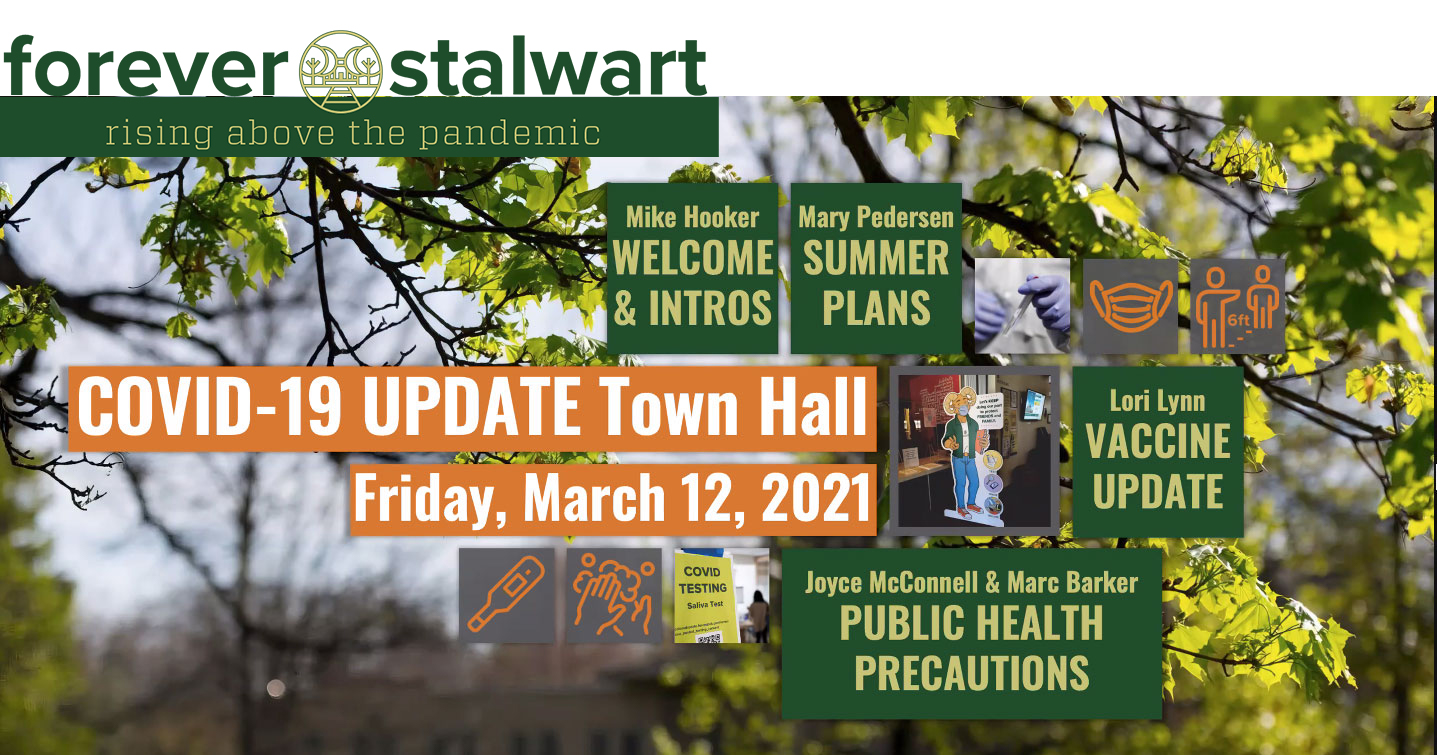
One year after the pandemic sent classes and most operations online last year, Colorado State University leaders gathered the community for another virtual town hall to address COVID-19 topics and questions. The March 12 Zoom event featured updates on the university’s Summer Session plans, vaccine rollout, and ongoing public health precautions and guidelines.
Summer 2021: What to expect
Provost and Executive Vice President Mary Pedersen updated attendees on what to expect for the 2021 Summer Session. The university is offering over 1,800 course sections this summer, about half of which are internships, directed studies or independent studies. Of the remaining courses to be offered, about 40% will be delivered via in-person or hybrid instruction, and 60% online. S/U grading and late course withdrawal will be extended for Summer Session students. Registration opens March 23 in RAMweb.
In addition, nonresident undergraduate base tuition is reduced by 30%, which extends to all Summer Session courses through RAMweb but does not include CSU Online courses. Tuition assistance and federal grants are also available to students in need, Pedersen said.
Summertime will also afford faculty and staff professional development opportunities through The Institute for Learning and Teaching, including courses in online teaching, facilitation and engagement.
As for younger learners typically on campus during summer months, Marc Barker, assistant vice president for safety and risk services and co-chair of the Pandemic Preparedness Team, provided updates on COVID-19 protocols for K-12 summer programing.
He called attention to a required application process for anyone planning campus summer activities with a face-to-face component, including camps and academic programs. Applications will be reviewed by the Pandemic Preparedness Team.
Limited supply of vaccines
CSU’s first shipment of the Moderna vaccine arrived on campus last week, Lori Lynn, CSU Health Network executive director and co-chair of the Pandemic Preparedness Team, told attendees. She reiterated that CSU is diligently adhering to state guidelines and working closely with the Larimer County health department in prioritizing eligible faculty, staff and students for the vaccine.
With demand continuing to exceed supply – CSU’s first shipment was just 200 doses – Lynn and others encouraged the community to seek out vaccines from multiple sources, and “take your first opportunity” to get one. Don’t wait for an invitation from CSU, because vaccines available through the university are likely to remain limited.
March 21 will mark the start of a new phase of Colorado vaccine eligibility that will include student-facing higher education employees, as well as frontline essential workers in food, transportation and housing – a category that will cover a large percentage of the CSU community, Lynn said.
Social norming
Barker and McConnell highlighted the work of the Social Norming Task Force, including campaigns aimed at students and the wider community encouraging public health practices like mask-wearing and handwashing. The university also recently hired 20 students as public health ambassadors.
“We have had extraordinary compliance from our students, and our students are very proud of what they’ve been able to accomplish on campus,” McConnell said. And “the most wonderful news of all,” she continued, is that according to a Centers for Disease Control and Prevention survey conducted September-November last year, 93.9% of people on or near CSU’s main campus were found to wear face coverings, and 95% wore them properly, not “as a chin strap.”
“I thank everyone for all the work they have done over this last year,” McConnell said.